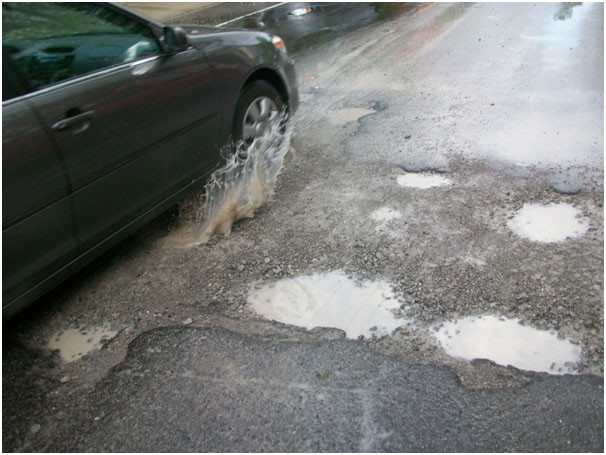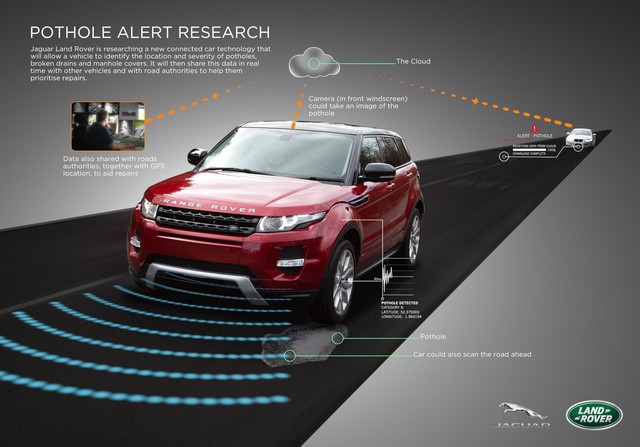Google has been granted a patent for technology that allows cars to detect potholes in the road and send the information to a main database.
Using sensors in the suspension, cars can detect uneven road surfaces and report irregularities like potholes via an on-board GPS system which logs the location of the problem area.
By doing this, Google could update its map and navigation systems to provide drivers with the smoothest route possible to their destination, similar to how it already displays delay information.

The patent explained: “The signals from the sensors are monitored by an electronic circuit of the head unit and analysed to judge the quality of the road by the amount of vertical vibration that is encountered.
“This data, together with the vehicle's location, may be transmitted through a mobile network to a central server for distribution and to improve driving directions in mapping software.”
Damage caused by potholes costs British motorists an estimated total of £730 million every year, with this technology potentially able to radically decrease repair costs by avoiding bad roads.

Back in June, Jaguar Land Rover announced it’s developing similar technology, which uses sensors to read the road ahead and automatically adjusts the suspension to cope with rough road surfaces.
Dr Mike Bell, global connected car director for Jaguar Land Rover, said: “Ultimately, sensing the road ahead and assessing hazards is a key building block on our journey to the autonomous car.
“In the future, we are looking to develop systems that could automatically guide a car around potholes without the car leaving its lane and causing a danger to other drivers.”
As well as saving money in damages, it’s hope that the new technology could also be shared with local authorities and councils to help better prioritise road repairs in the most-used areas.
Jaguar Land Rover’s research team will be working closely with Coventry City Council to understand how the information gathered could be shared with road authorities, and what data would be most useful to maintenance teams.
Councillor Rachel Lancaster, cabinet member for public services at Coventry City Council said that data is already collected on potholes, but the new technology could vastly improve repair times.

“We already collect lots of data which we monitor very carefully ourselves,” she said, “but having this kind of extra information might allow us to further improve our maintenance programmes which would save the taxpayer money.
“This is just the sort of information that could help us identify the cause of the problem, prioritise it and contact the owner of the manhole or drain to get it fixed more quickly.”



